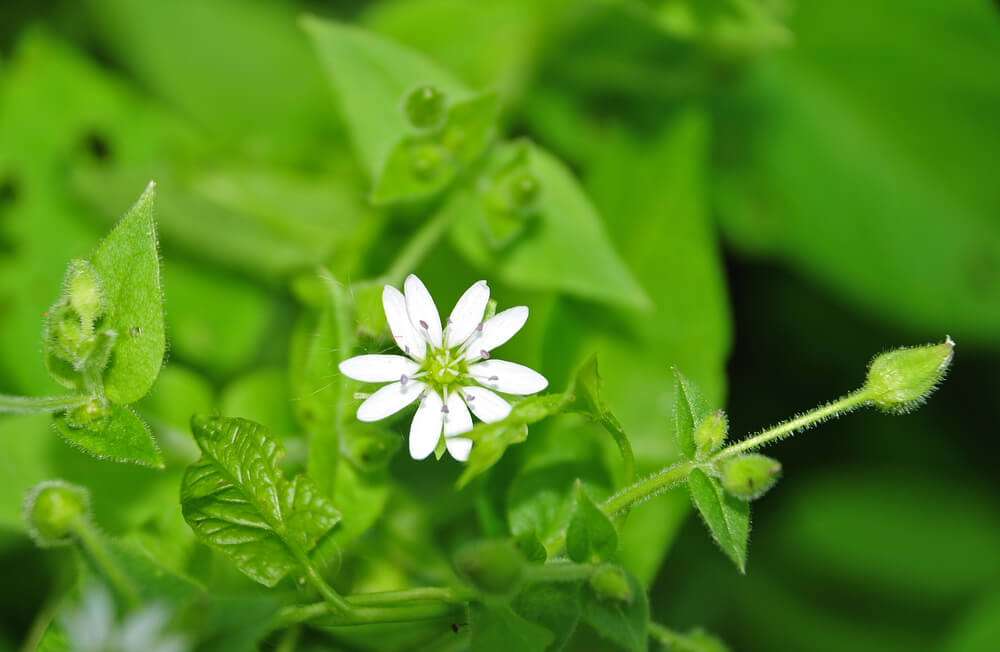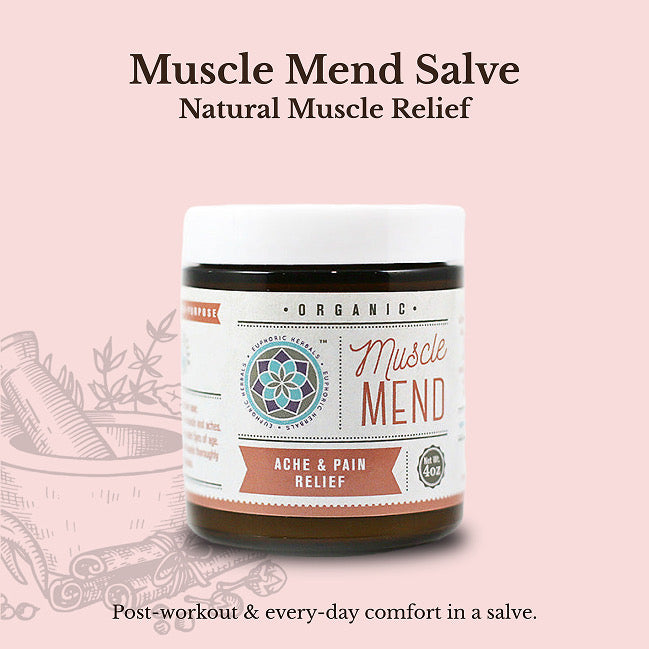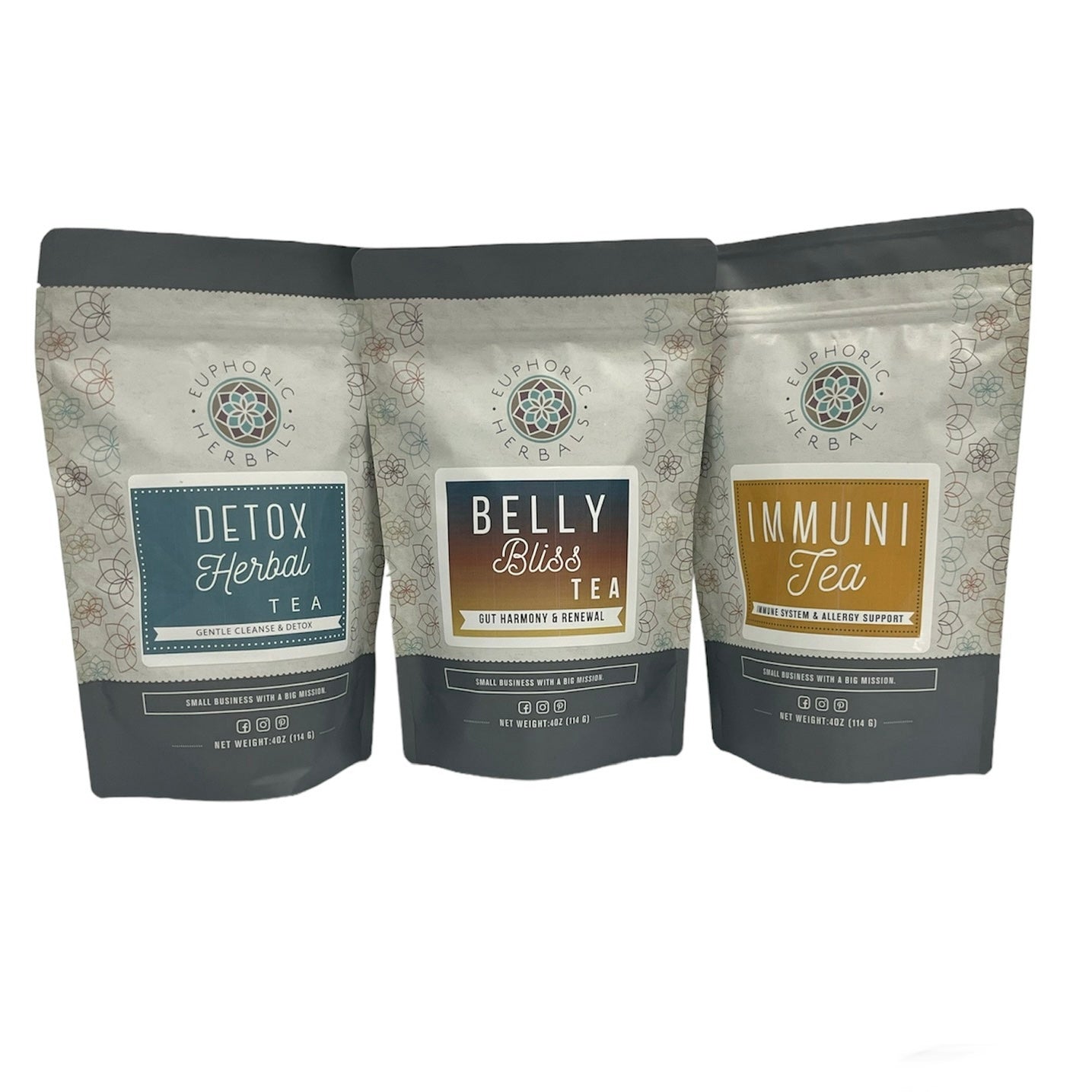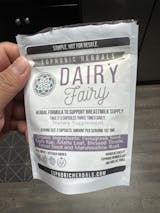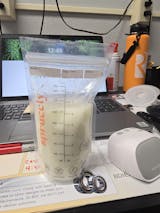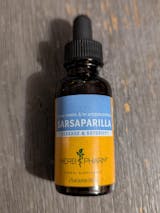Common "weeds" like dandelion and burdock often hide a load of health benefits. Chickweed is one such plant that is often tossed aside (literally), yet would be much more useful to us if we ate it. The medicinal and nutritional benefits of chickweed used to be well-respected- until it fell out of favor for more interesting imported plants.
Thankfully, herbalists never stopped using chickweed. A renewed interest in foraging and using home remedies has also helped bring the value of this herb back to mind.
Here's more about what kind of plant chickweed is, the benefits of chickweed, and ways you can use it at home.
What Is Chickweed?
If you start typing "chickweed" into a Google search, one of the first search terms that pops up is "chickweed killer." This is because of the opportunistic nature of chickweed. It's a plant that likes to spread and occupy new areas, often finding itself an unwanted guest.
Viewed by many as a common weed, chickweed (Stellaria media) is one of the first green things to emerge in spring. If left alone, this low-growing plant will form a carpet. Individual plants grow stems about 6-10" long with small and slightly fuzzy oval leaves.
Besides its growth habit, you can recognize chickweed most easily by its small, white, star-shaped flowers. These flowers eventually turn into seed heads that will reseed rapidly.
Chickweed grows practically anywhere: pastures, fields, lawns, gardens, waste areas, coastal areas, and anywhere there's disturbed soil. It's usually much harder to get rid of this tenacious herb than it is to find it.
The leaves and flowers of chickweed are used for their medicinal benefits and as food. They have many uses in herbalism and are also favored by chickens and other livestock (hence the name). Chickweed is easy to forage if you know what you're looking for, but make sure any you harvest has not been sprayed with pesticides.
Benefits of Chickweed
Nutritious

You can get many benefits from chickweed just by eating it fresh. The leaves contain lots of nutrients including vitamin C, calcium, potassium, phosphorus, and magnesium. They also contain plant compounds like flavonoids (a type of antioxidant) that are known to support overall health.
Following the natural seasons, eating chickweed is a good way to get healthy green nutrients after eating richer food during the winter. It can be foraged as a food crop or survival food and was even once used by sailors to prevent scurvy.
Cough and Cold Support
Chickweed contains plant compounds known as saponins. These make it act as a mild expectorant, which means something that can loosen mucus and help you cough it up. It can help to clear your chest during a cold or flu.
Chickweed is also a demulcent herb. This means it can soothe and bring moisture to dry and inflamed tissues, including those in your lungs. Using it for dry and spasmodic coughing can be beneficial, since it will calm the irritated tissues that are causing the problem.
Skin and Wound Healing
Chickweed is a well-known herbal support for broken, itchy, red, and/or irritated skin. It's frequently added to herbal lotions, salves, creams, ointments, etc. for skin problems like dryness, eczema, rashes, and psoriasis. (1)
You can especially make use of chickweed for hot/inflamed skin conditions, since it has cooling properties. It can calm angry wounds and will even help draw out splinters. If you have it fresh, use it as a poultice or infusion. Or use it in a salve like this Baby Balm, which is suitable even for sensitive skin.
Aids Digestion
Because it's a demulcent herb and can soothe irritated tissues, chickweed has benefits for digestive health. In a high enough quantity, it acts as a mild laxative but has the greatest benefit by soothing mucous membranes in you digestive tract. It's also an alterative, which means it helps your body absorb and use nutrients more effectively.
Chickweed even has a reputation for helping with weight loss. This is mostly from anecdotal stories and traditional use, but it may be able to suppress appetite and prevent weight gain. (2)(3)
Lymph Cleanser
Chickweed is a gentle lymph cleanser and can be helpful for a stagnant lymphatic system. Good lymphatic circulation is needed for your body to move out waste products and to have a strong immune system.
A secondary effect of lymphatic cleansing is better skin health. Your skin can become an exit route for accumulated toxins your body is unable to get rid of. This can lead to skin eruptions and other issues, so taking chickweed internally will benefit your skin, too.
Soothes Itchy Eyes

A chickweed poultice or pack is a traditional remedy for itchy and/or irritated eyes. It has a cooling and moistening effect, which is exactly what your eyes need when they feel red, dry, or inflamed.
You can simply mash up fresh chickweed leaves and apply the pulp to your closed eyes for 10-20 minutes at a time.
Using Chickweed at Home
Chickweed is an herb that's best used fresh, although you can keep the dried version on hand to use when it's not growing outside.
There are many ways you can take advantage of chickweed's health benefits. You can simply pick the fresh leaves and add them to salads or smoothies in the spring. It can be harvested at any time but will start becoming tough after going to seed.
You can also use the leaves to make a tea, or extract the good properties using vinegar or alcohol. The fresh herb can be infused into oil and used to make healing skin salves, lotions, and ointments.
Another way to use chickweed is to juice it. This makes a highly nutritious juice, although you won't be getting any fiber.
Precautions
Chickweed is a very safe herb that can be consumed in food-like amounts. It does contain saponins, which can give some people an upset stomach, nausea, or diarrhea if consumed in large amounts.
There is also the chance you could have an allergic reaction when using chickweed topically, although this is very rare. Discontinue use if you experience any negative reactions.
Discovering Chickweed
Who knew that a plant growing in most of our backyards could have such beneficial properties? It's no surprise that this herb was once used constantly by European herbalists and later by Native Americans and settlers.
Able to benefit your skin, digestion, lymphatic system, lungs, and more, humble chickweed is one herb to be familiar with!



















































































































































































